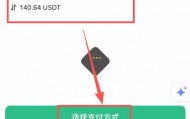初中英语中易混淆单词
1. advice 建议,忠告(不可数);
suggestion建议(可数)
________ useful advice you gave me! (What)
________ valuable suggestion you have offered me! (What a)
2. room / space / place:
room“房间”(可数);“空间”(不可数)
Could you make some room for me?
你能为我让一下空间吗?
space“太空; 空间” (不可数) in space在宇宙太空
Is there any space for me in the car?
车里有给我留的空间吗?(此处和room的含义相当)
place“地方”(可数),指某一具体地点。
I want to live in a place which is warm in winter.
我想住在冬季温暖的一个地方。
It is a wonderful place to go (to).
3. news/ information/ message
news新闻,消息(不可数);
information信息(不可数);
message音信,口信(可数):
Can I take a message for you?
May I leave a message?
4. job/ work
job, 可数:
I have a job as a teacher.
展开全文
work, 不可数:
I cannot find work in this town.
5. 声音voice/ noise/ sound
voice指人的声音或嗓音;
noise指难听刺耳的噪音,吵闹声;
sound指声音的总称。
6. 数量 number / amount
number 指可数名词的数量;
amount 指不可数名词的数量
7.the/ a number of
the number of “…的数量”;
a number of: “许多的”, 都跟可数名词复数。
前者作主语,谓语用单数;后者作主语,谓语用复数。
The number of the trees______ two thousand.
(用单数谓语is. 另注意trees前有限定词)
A number of trees ________ been cut down.
(用复数谓语have. 另注意trees前无限定词)
8. other; else
other 修饰名词,放于名词前。
else修饰疑问词和不定代词、不定副词,放在后面。
What else can you see in the picture?
Do you have anything else to say?
Where else can you see it?
Jim is taller than any _____ boy in his class. (other)
9. well/ good
well:1)adj 指身体健康状况好:
You look well today.
2) adv 修饰动词或形容词: sell well畅销,do well in ; be well worth doing 很值得做
good:adj.修饰人或物 be good at; smell good
The clothes look _______ and they sell _______ on the market. (good; well)
10. already/ yet
already用于肯定句; yet用于否定句和疑问句
11. also; too; as well; either
“也”:either, 用于否定句的末尾。
also, 通常挨着动词,少用于句尾。
too, 通常在句尾,前常有逗号。
as well, 只用于句尾, 前无逗号。
注意:后三个词都不用于否定句。
12. before; ago
ago“…时间前”结构:时间段+ago, 用于一般过去时。
The Greens moved to Shanghai four weeks ago. I saw it ten minutes ago.
(若有since+时间段+ago,常用现在完成时:Mr. Li has worked here since 5 years ago.)
before 单独放在句尾,常用现在完成时:“以前” I have been to London before.
(若是时间段+before,常用过去完成时,“…前”:I had seen the film two weeks before. )
13. almost; nearly; hardly
almost 几乎,差不多,后接肯定或否定词;nearly几乎,差不多,后接肯定意义的词。
hardly几乎不,表否定。
14. too much, too many与much too: much too“过于”,加形容词或副词原级。
much too hot / slowly等。
too much“太多的”,加不可数名词。
too much work / rain等。
too many“太多的”,加可数复数。
too many books / people等。
15. a bit / a little区别:
都可作副词,后直接加形容词或副词。
I’m a bit / a little hungry. She feels a bit / a little tired.
也都可作代词(或形容词),后接不可数名词,但有所不同:
She ate a little bread and went out. (a little 直接加不可数名词)
She ate a bit of bread. (a bit先加of,再跟名词)
16. everyday与every day:
everyday是形容词,后接名词,“日常的”。
He is practicing everyday English.
every day是副词,作时间状语,“每天”。
We speak English every day.
17.wish;hope
① wish既可接to do sth. 也可接sb + to do sth. 也可接that从句.
I wish to spend my summer holiday in Qingdao. I wish you to join my party this Sunday.
I wish (that) I could be a scientist. (注:接that从句时,从句用虚拟语气。)
wish还用来接祝愿语:wish sb a great success; wish you a happy journey; wish you good luck等。
② hope接to do sth. 或that从句. 但不接sb to do sth.
I hope to receive a letter from you some day. I hope you will get well soon.
18. spend; take; cost; pay
①It + take + sb + some time + to do sth:
It took us half an hour to cut down the tree.
②物 + cost + sb + 钱:
The bag cost me thirty yuan.
若cost后无sb, 则译作“价钱是”:
The bag costs 30 Yuan.
③人+ pay + sb + 钱 + for sth:
I paid the seller 200 Yuan for the bike.
④人 + spend + 时间/ 钱 + on sth / (in) doing sth.
The girl spent two hours (in) searching the Internet.
The girl always spends much money on her clothes.
spend 有时可指“度过”:spend holiday / weekends / winter
19. put on; wear; dress;in
①put on,“穿上”后接物。表行为,是短暂动词。
You should put on your coat when you leave.
②wear,“穿,穿着”后接物,表状态,是延续性动词。
He always wears the yellow sweater in winter.
③dress, “给…穿衣”后接人。
Lucy is dressing her little brother now.
be dressed in后常接具有某种特征的衣物。也可直接加表示颜色的词。
The lady is dressed in a white skirt.
The students are all dressed in yellow.
get dressed “穿好衣服”,常不接宾语:
He went out as soon as he got dressed.
dress up (as) ...“装扮(成)......”
He dressed up as a clown.
他装扮成小丑。
④in, “穿着”后接具有某种特征的衣物,表状态,是介词,不可作谓语,可作状语。
也可以直接加表示颜色的词。
The woman in a white skirt is my teacher.
I want to talk to the boy in black.
(我想找那个穿着黑衣服的男孩谈谈。)
20. reach; arrive; get 到达:
①get to + 地点 get to Shanghai / London / China
接地点副词时,不带to. get there / home / here.
②arrive in+大地点(如Beijing / Zhengzhou),arrive at+小地点(如school / hospital)
arrive只作不及物动词,所以也可单独用:
Please ring me up when you arrive.
③reach只作及物动词,后直接加地点:reach Beijing / England
但常不说reach home / there / here.
21. talk, tell, say, speak:
①talk只作不及物动词。
Don’t talk in class.
Shall we talk about our English study?
He is talking with his teacher.
May I talk to you?
(注意talk接人和接物时介词搭配不同:talk with / to sb ; talk about sth)
②tell只作及物动词,“告诉;讲”。常接双宾结构(tell sb sth.),常用短语有:tell a lie; tell the truth; tell the difference between ---; tell sb a story; tell a joke
③say必须接有内容,或逻辑上有内容作宾语。
(所接内容见以下划线部分)
Please say it in English.
How do you say that in English?
Please show me what to say..
Do you have anything to say?
I must say sorry to you.
④speak
●“说话”不及物动词。
●接人时先加介词to.
May I speak to Mr. Smith?
●也可译为“说”,作及物动词,后接语言。
Do you speak English / Chinese?
22. win与beat区别:
都有“赢”的意思。win后加物:
而beat后加的是人,也可译为“打败”:
I’m afraid they will beat us.
23. leave; forget
①leave可指“离开”
leave Zhengzhou for Wuhan
离开郑州到武汉
② leave留下;忘记
I left my book at home.
leave后接地点,而forget后无地点。如:
Sorry, I forgot the money.
24. take, bring, fetch与carry:
都译为“拿”。
◆take“拿走”,从说话人处带到另一处。
Could you take the rubbish out when you leave?
◆bring“带来”,从另一处带到说话人处。
Don’t forget to bring your homework here tomorrow.
◆get“去拿来”,先到另一地拿东西,然后再返回到说话人处。
When you go back to the classroom, please get me my pen.
◆carry“拿、搬、扛”,没有特定方向。Tim is carrying a box.
25. receive; accept
receive指收到,但不一定接受;accept 指接受,收下
I ________ a gift from one of my friends, but I don’t want to _________ it. (receive; accept)
来源丨英语自学资料
明师俱乐部进行编辑整理,版权归原作者所有,如有侵权请联系删除
明师投稿箱
欢迎您把自己的英语教学经验方法、优质教学设计案例、教育心得等和大家分享,可成为明师国际教育研究院的签约作者,更有机会被收录到《明师说》系列正式出版,与40万英语教师共同进步,快来投稿吧!
投稿邮箱:mingshijiaoyanbu@163.com,邮件命名为“投稿+作者姓名+手机号”
教学资源、精彩活动、趣味互动
福利折扣、在线咨询
湖南、福建、川渝、浙江
山东、江苏、安徽、江西
北京、上海、山西
河北、河南、天津
湖北、广东
陕西、内蒙
其他地区
请按地区添加明老师, 不要重复添加









评论